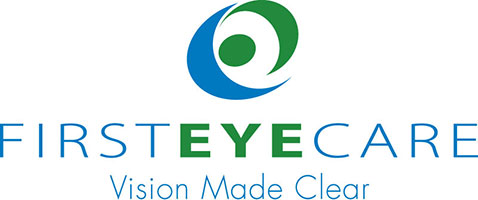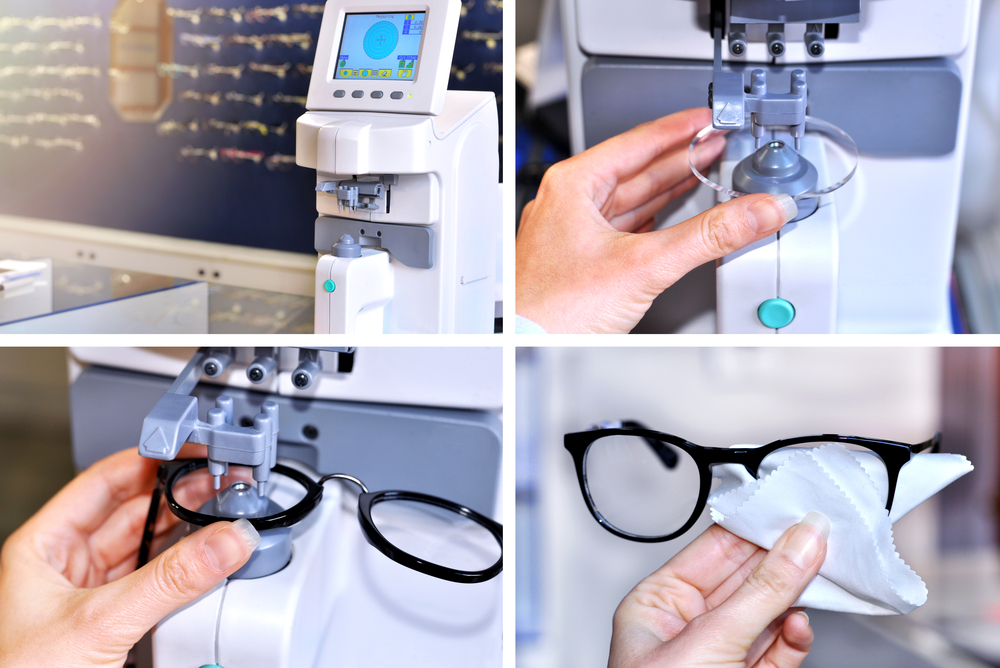The Type of Lens in Your Glasses Makes Difference
When you begin your search for the ‘perfect’ eyeglass lenses, there’s a good chance you will feel overwhelmed. Thanks in part to technology, there are a variety of lens materials and thicknesses to choose from. While your main goal is undoubtedly to be able to comfortably see, there are many other factors to consider before you settle on a lens material. It is easy to get caught up in selecting the frames, they are what people (and you!) will notice first when they look at you. But not spending as much time on the lenses you end up with is a huge mistake.
The quality of the lenses you are wearing, their coatings, and their properties will all impact how comfortable your glasses are. Not having the right lenses can lead to subtle or serious issues, leaving you with a constant headache or inclination to squint when reading. Furthermore, many people opt to have different glasses for different purposes, which often means a different material for the lenses.
Today we are going to take a closer look at two of the most common materials used in eyeglasses – high index plastic and polycarbonate. They are both great materials and boast a handful of benefits, so be sure and take the time to read through the below information before you decide which material is best for your needs. As always, if you have any other questions or would like additional assistance, please contact First Eye Care DFW today. We are dedicated to helping our patients – both young and old – find the best eyewear solutions. When it comes to eyeglasses, we are here to ensure you walk away with frames that give you confidence and speak to your personality, and also with lenses that will support your vision.
Factors to Consider When Selecting Lenses
Both the material and quality of lenses are often overlooked by people when shopping for new eyeglasses. But the truth of the matter is that the lenses – even more than the frames – will govern how satisfied you are. If you don’t have the right lenses, your eyes may feel gritty and uncomfortable. You may also experience other unpleasant symptoms.
Before we start looking at high index versus polycarbonate lenses, it is important to note that the lenses you require will depend on your vision needs. It’s as simple as that. Sure, there are plenty of add-ons you can explore once you’ve determined which lenses are best for your needs, but the lenses you choose will be determined by what vision-correcting properties you are looking for. Here is a brief look at some of the factors to consider when selecting lenses:
- Single vision distance: How well can you see at a distance? Do you need a stronger prescription to see clearly?
- Single vision reading: Do you need lenses to see things at a close distance?
- Progressive lenses: Do you need lenses that can help you see at all distances? Are you in need of highly customizable lenses for your unique vision needs?
- Bifocal lenses: Do you need to correct both near and far vision? Do you have two different lens prescriptions for your vision?
Once you’ve determined your vision needs and discussed the above with your optometrist, it’s time to move onto the materials.
Do I need glasses?
As we get older, it is only normal to experience vision loss. Learning how to age gracefully and support this process is a must. Because our vision is one of the first things to go when we age, finding lenses that support these natural changes can be beneficial. If you have additional questions about how to deal with vision loss as you get older, please do not hesitate to reach out to our DFW eye care team.
Before we dive into the differences between high index and polycarbonate lenses, let’s go over the top signs you may need eyeglasses:
- Your vision appears blurry
- You are experiencing double vision
- Headaches appear more frequently
- You are squinting often
- Halos or auras appear around objects in bright light
- Your eyes feel strained
- Your vision appears distorted at times
- It’s more difficult to drive at night
- You have noticed a visible change with your vision
High Index vs. Polycarbonate Lenses
If you are looking for thinner, lighter lenses that are comfortable, high index is the way to go. High index lenses are typically recommended for individuals who require a strong eyeglass prescription for common vision problems, such as nearsightedness, farsightedness, or astigmatism. In the past, individuals with such strong prescriptions were left with “coke bottle” glasses.
However, we’ve come a long way since those days.
Today, high index lenses are noticeably slimmer, lightweight, and attractive, regardless of what your prescription is. Keep in mind that the stronger the prescription, the thicker the edges of the lenses. If you do require a strong prescription, many different frame options will hide the thickness of the lenses, if you desire.
Polycarbonate lenses first hit the market in the 1970s (as safety glasses) and, by the 1980s, were the lens material of choice. Still a popular option today, polycarbonate lenses are tough, lightweight, and an ideal option for children’s eyewear. Because of their durability, polycarbonate lenses are much less likely to break or fracture than even high index lenses. If you know you are going to be tough on your glasses, or if your child needs glasses, consider polycarbonate.
What are the benefits of high index lenses?
Here are some of the top advantages of high index lenses:
- Thinner material
- The overall weight of the lenses is much lighter
- Ideal for individuals with farsighted prescriptions
- Provide comfort and clear vision long-term wear
- Can sharpen vision
Individuals who are nearsighted, farsighted, or have astigmatism may benefit from high index lenses.
What are the benefits of polycarbonate lenses?
Polycarbonate lenses, on the other hand, carry the following benefits:
- Durable and impact-resistant
- Tough
- Thin and lightweight
- UV and blue light protection
- Scratch-resistant
The bottom line? Not all lenses are created equal. Doing your research and making sure you end up with lenses that will support your vision problems without compromising comfort is imperative. Both high-index and polycarbonate lenses are a great choice, as are the many other materials of lenses we offer here at First Eye Care DFW. From adding an anti-reflective coating to considering progressive lenses, there are many different options to help you find the perfect glasses.
If you have any questions about what we discussed today, or if you would like to schedule a comprehensive eye exam to discuss any of our vision concerns, please do not hesitate to contact First Eye Care DFW today. Your satisfaction is our top priority and we will do everything we can to help you not only understand what options you have for eyeglass lens material, but which will be best for your lifestyle.




Comments
How does the cost compare to standard bifocals?
I am very dissatisfied with my “new” Costco lenses. In fact, I hate them. My old polycarbonate lenses provide me much clearer vision. The new glasses I got are NOT CLEARER, I returned to Costco and the optician said she had the same experience when she got the new high index lenses, but I just needed to wear them and then the vision will become clearer. That has not happened, My vision is worse watching TV and reading the banner across the bottom than taking the glasses off and using the naked eye. I can’t read small print with them and reading my computer screen is awful. If these are a superior lenses, I’m not having that result. The optician said the prescription is essentially the same as my old glasses that I can see with (polycarbonate lenses). I don’t get it!
First of all, why wouldn’t my viewing be clear to begin with?
I just picked up my high index glasses today. When I switched from standard to polycarbonate, the improvement was amazing. I decided to go with the high index this time, and wow! Just wow! I was amazed the first time I tried them on. The optician said there wouldn’t be much of a difference, but she was wrong. These are definitely worth the extra money. If you aren’t seeing as well with the high-def lenses, go back to your optician or your prescriber. Something is definitely wrong.
Crown Optical did my glasses. They charged me for high index and polycarb on my transitions lenses. Why do I have to have both. I think they are trying to get money out of people. I’m on Medicare and they told me they didn’t bill correctly. They put everything as one for the lenses, instead of charging for lenses, charge me for high index, charge for polycarb, charge me for anit-reflective coating, and so on. I was only to pay for progressive lenses. Then Medicaare would tell them what my cost would be.
But did I need polycarb and high index with a low power?